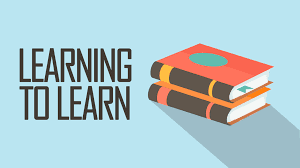“Learning Development”
“Learning
Development”
Learning is an active process. All parents/carers and
teacher who have observed children in learning situations can testify just how
actively they are involved when they are interested. For example, they can be completely
absorbed in the story that they are listening to or in the pretens game that
they are playing. Children learn through their explorations and play, and
through opportunities to talk things through with others, usually adults. Jean
Piaget, referred to active learning as constructivism. He suggested that
children construct knowledge for themselves by actively making sense of their environment.
According to Piaget the process of assimilation is the child assimilates
information to fit their own interpretation of the world and existing ways of thinking
(i.e. all animals are hatched from eggs). At a later stage, perhaps, in a
conversation about animals, a parent might explain that piglets are not hatched
from eggs. At this point the child will have to adapt or change their way of
thinking to accommodate these new ideas. Piaget refers to this process of
accommodation.
Piaget’s stages of development:
- 1. Sensori-motor
stage (from birth to two years of age): The young child learns to interact with
the environment by manipulating object around him
- 2. Pre-operational
stage (from two to seven years of age): The child’s thinking is largely reliant
on perception but he or she gradually becomes of logical thinking. On the whole
this stage is characterized by egocentrism (kind of self- centeredness) and
lack of logical thinking.
- 3. Concrete
operational stage (from seven to 11 years of age): year seven is the ‘turning
point’ in cognitive development because children’s thinking begins to resemble ‘logical’
adult-like thinking. They develop the ability to apply logical reasoning in
several areas of knowledge at the same time (such as math, science, or map
reading) but this ability is restricted to the immediate context. This means
that children at this stage cannot yet generalize their understanding.
- 4. Formal
operational stage (from 11 years onwards): Children are able to think beyond
this immediate context in more abstract terms. They are able to carry out
logical operations such as deductive reasoning in a systematic way.
The importance of language for learning, the language
used in interactions with parents/carers and teacher is important because it is
the vehicle through which understanding and learning take place. One of the
most important tools parents/carers use to regulate their children’s leraning
is language: in particular, dialogues. Using language, they remind children what
they already know, explain how to go about solving problems and in general
support their learning.
Children within the same age group may show similar
characteristics, but at the same time they are also individuals with differing strengths
and preferences as learners. While teachers can benefit from familiarizing
themselves with the universal aspects of children’s development, it is also
important that this is balanced out with focus on the individual child. Teachers
will have to use their best judgement in deciding about the most suitable
materials and techniques to fit learners of different ages in different
context. Learning about the children by talking to them, observing them, and
talking to their parents/carers can help teachers to understand the children they
are working with. By incorporating
variety into everyday practice, teachers of children can make their lessons
full of stimulation for all learner types an intelligences.



Ulasan
Catat Ulasan